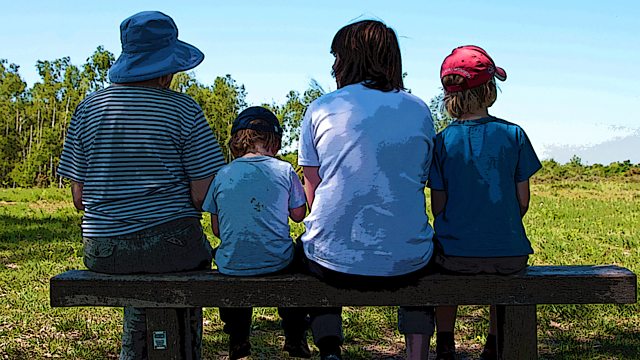Down the Generations
Kat Arney reports on research showing that what happened to a person's grandparents may affect the life they lead and how inheritance of bad health can hold back whole societies.
As the Second World War drew to a close, the German army effectively blockaded parts of the Netherlands. Food supplies dried up and calorie intake fell to 600 per day in some areas. People starved - the only example of a widespread famine in 20th century Europe. Babies born to mothers who were pregnant during the famine tended to have a low birth weight. And those children, as they grew up, had more health problems than those in the womb before and after the famine. That in itself isn't surprising. But what is surprising is that many of the ill-effects took decades to emerge. Babies who were born apparently healthy, and were still fine at 18, were more likely to suffer from diabetes and schizophrenia and cardiovascular problems in later decades. And by the time they reached their 50s, the famine babies were more likely to be unemployed.
How bad the effects are often depends on how developed the foetus was when the famine struck. Babies malnourished in the first trimester tended to have normal birthweights, while those malnourished in the third trimester were born small. But here's the kicker: when the apparently normal babies grew up, they as mothers were more likely to have heavier than average babies. Something is being passed down the generations.
The Dutch "Hunger Winter" study is just one of many studies where economists, as well as health researchers, have made discoveries from looking at the big data sets which arise from "natural experiments" such as famines.
Kat Arney asks, from an economic point of view, would we be better off investing in people's health in the nine months before they are born, rather than playing catch-up later?
Producer: Jolyon Jenkins.
Last on
Broadcasts
- Fri 29 Jul 2016 11:00Βι¶ΉΤΌΕΔ Radio 4
- Tue 6 Sep 2016 21:00Βι¶ΉΤΌΕΔ Radio 4

